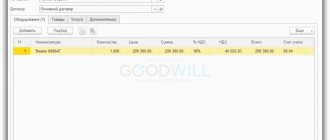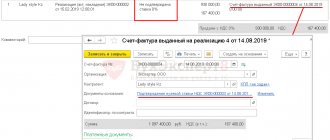If you disagree with the facts, conclusions and proposals set out in the desk audit report, within one month from the date of receipt of the report you have the right to submit written objections to the tax office in general or on its individual provisions. In this case, you have the right to attach documents confirming their validity to written objections to the desk inspection report.
The tax audit materials (the report, other materials of the tax audit and additional tax control measures, a written objection to the desk audit report) must be considered by the tax authority within ten working days from the date of expiration of the deadline for submitting objections to the report. This period may be extended, but not more than one month.
How to correctly write objections to a tax audit report
The issue is especially relevant in connection with increased control over business, as well as the introduction of electronic explanations for VAT. The decision that the tax authority will make depends on how correctly, detailed and completely the objections are written - whether to bring them to justice, to issue a VAT refund or to refuse a refund. Therefore, in this material we will learn the basic algorithm for drawing up objections to a tax audit report.
Drawing up objections to the inspection report
Objections to a tax audit report must be prepared in the event of: - desk audits; — on-site tax audits.
A person in respect of whom a tax audit was carried out, or his representative, in case of disagreement with the facts set out in the audit report, as well as with the conclusions and proposals of the inspectors, has the right, within one month from the date of receipt of the tax audit report, to submit written objections to the relevant tax authority on it as a whole or on its individual provisions (clause 6 of Article 100 of the Tax Code of the Russian Federation).
Moreover, there are no special requirements for objections to the desk tax audit report. At the same time, objections must necessarily indicate: - name (for an organization) or last name, first name and patronymic (for an individual); — address of location according to the constituent documents (for an organization) or address of residence (for an individual); — INN and checkpoint; — date of submission of objections; — the exact name of the tax authority to which objections are submitted; — surname, initials and position of the inspector who conducted the desk inspection; — based on which declaration (calculation) the audit was carried out (tax, period).
Let's give an example of objections.
To the Head of the Federal Tax Service of Russia No. 55 for Moscow
173000, Moscow, st. Malakhova, 32
from Amir LLC,
TIN 7755134420, checkpoint 775501001,
173000, Moscow, st. Malakhova, 30
Objections of Amir LLC to the desk tax audit report dated March 13, 2017 No. 3-29/55
March 13, 2021, Moscow Inspectorate of the Federal Tax Service of Russia No. 55 for Moscow, represented by senior state tax inspector K.S. Ivanova (hereinafter referred to as the Inspector) conducted a desk tax audit of the primary tax return for property tax. As a result of the measures taken, an underpayment of taxes to the budget was revealed. The taxpayer does not agree with the report of the desk tax audit on the basis of the following
Position of the tax authority
During the on-site tax audit for 2021, it was established that the company unlawfully did not include in the average annual value of taxable property of organizations the cost of fixed assets actually used in production activities during 2021.
In 2021, the company acquired real estate in the amount of RUB 4,513,954: - diesel generator (transfer and acceptance certificate dated November 14, 2016); — mobile conveyor (supply agreement dated June 29, 2016). The company accepted the purchased equipment for accounting as part of the operating system from January 1, 2021; until that moment, the equipment was on balance sheet account 08.04 “Acquisition of fixed assets”. The tax authority also indicates that the actual use of the objects began in 2016 when performing work or providing services for the management needs of the organization or for provision by the organization for a fee for temporary possession and use or for temporary use. During the interrogation, accountant I.I. Ivanova explained that the discrepancies between the data on the on-site tax audit on the property tax of organizations and the data on the submitted updated declaration on the property tax of organizations for 2021 occurred due to an accounting error. Thus, the data from the on-site tax audit are correct. Position of the company
According to Article 7 of the Federal Law “On Accounting”, in the event of disagreements regarding accounting between the head of an economic entity and the chief accountant or other official entrusted with accounting, or a person with whom an agreement for the provision of services has been concluded for accounting, the head of an economic entity, who is solely responsible for the accuracy of the presentation of the financial position of the economic entity as of the reporting date, the financial result of its activities and cash flows for the reporting period. Thus, the conclusions that discrepancies in corporate property tax occurred due to an accounting error were not confirmed by the head of the economic entity, and therefore are not correct. The tax authority confirms that the registration with Gostekhnadzor was carried out in 2021, which confirms the technical feasibility of using the property. Since installation in Gostekhnadzor is provided for by law, and the technical condition of the equipment has not been checked by an authorized body, the use of the above equipment without compliance with legal requirements and commissioning is not possible. In addition, operation without registration with Gostekhnadzor is a violation of the law, providing for administrative liability. Registration of hazardous production facilities and maintenance of the state register of hazardous production facilities is carried out by the Federal Service for Environmental, Technological and Nuclear Supervision (Rostekhnadzor) (clause 5.3.5 of the Regulations on Rostechnadzor, approved by Decree of the Government of the Russian Federation of July 30, 2004 No. 401, clause 3 of the Rules, clause 6 of the Regulations). The lack of state registration of a hazardous production facility is an administrative offense entailing liability under Part 1 of Art. 9.1 Code of Administrative Offenses of the Russian Federation. In Part 1 of Art. 9.1 of the Code of Administrative Offenses of the Russian Federation establishes administrative liability for violation of industrial safety requirements. These requirements mean the conditions, prohibitions, restrictions and other requirements contained, in particular, in the Law (clause 1 of Article 3 of the Law). One of them is the requirement for mandatory registration of hazardous production facilities in the state register, established in paragraph 2 of Art. 2 Laws. From this we can conclude that violation of this requirement entails liability under Part 1 of Art. 9.1 Code of Administrative Offenses of the Russian Federation. This is confirmed by the following judicial acts: - Resolution of the Federal Antimonopoly Service of the Volga-Vyatka District dated November 23, 2010 No. A82-4734/2010; — Resolution of the Federal Antimonopoly Service of the Volga-Vyatka District dated June 16, 2010 No. A31-557/2010; — Resolution of the Federal Antimonopoly Service of the Volga-Vyatka District dated April 27, 2009 No. A17-1418/2008 (Decision of the Supreme Arbitration Court of the Russian Federation dated September 3, 2009 No. VAS-10704/09 refused to transfer this case to the Presidium of the Supreme Arbitration Court of the Russian Federation for review in the order of supervision). Consequently, the company lawfully put the equipment into operation only after registration with the authorized body. This fact was recorded at the end of 2021 (December 16, 2016). The legality of non-assessment of property tax is also confirmed by the Ministry of Finance. According to paragraph 3 of Art. 1 of the Federal Law of November 29, 2012 No. 202-FZ “On Amendments to Part Two of the Tax Code of the Russian Federation”, paragraph 4 of Art. 374 of the Code is supplemented by paragraphs. 8, on the basis of which, from January 1, 2013, movable property registered on January 1, 2013 as fixed assets is not recognized as an object of taxation for corporate property tax (clause 8, clause 4, article 374 of the Tax Code of the Russian Federation, Letter Ministry of Finance of Russia dated January 10, 2013 N 03-05-05-01/01, Letter of the Ministry of Finance of Russia dated December 24, 2012 N 03-05-05-01/79). In addition, the tax authority unlawfully classifies a diesel generator and a mobile conveyor as real estate. The concepts of movable and immovable property are defined in Art. 130 of the Civil Code of the Russian Federation (hereinafter referred to as the Civil Code of the Russian Federation). Immovable things (real estate, real estate) include objects whose movement without disproportionate damage to their purpose is impossible, including buildings and structures and other property (Clause 1 of Article 130 of the Civil Code of the Russian Federation). As for movable property, things not related to real estate are recognized as movable property, the registration of rights to which is not required, except in cases specified in the law (clause 2 of Article 130 of the Civil Code of the Russian Federation). Article 130 of the Civil Code provides one of the key criteria for classifying property as real estate - a strong (primarily physical) connection with the land. Its essence is as follows: if an object can be moved from one place to another without disproportionate damage to its purpose, it is recognized as movable property. In this case, there is no strong connection with the ground. A conveyor, dump truck, bulldozer are not real estate. The Civil Code classifies real estate as: - land plots; — subsoil areas; - everything that is firmly connected to the ground (buildings, structures, unfinished construction objects, etc.); — aircraft and sea vessels; — inland navigation vessels; — space objects; - enterprise (as a whole as a property complex). An object of real estate must be understood as a single structural object of capital construction as a set of those specified in paragraph 2 of Art. 2 of Law No. 384-FZ of objects functionally connected with a building (structure) so that their movement without causing disproportionate damage to the purpose of the real estate object is impossible (Letter of the Ministry of Finance of Russia dated March 29, 2013 No. 03-05-05-01/10050). Thus, the above property (diesel generator, mobile conveyor) does not belong to real estate. Movable property is not subject to property tax on the basis of paragraph 8 of paragraph 4 of Article 384 of the Tax Code of the Russian Federation. Consequently, the above equipment is not rightfully included in the tax base for property tax, since: - it was put into operation after installation in Rostechnadzor; — put into operation after 01/01/2017, which confirms the right to a property tax benefit in relation to movable property.General Director A.A. Benediktov
Here is an example of an objection.
However, what is the algorithm for drawing up objections? Algorithm for writing objections
It is necessary: - carefully study the act of the tax authority; — try to find errors associated with violation of the procedural procedure for conducting an inspection; — find errors associated with errors in the application of tax legislation; — draw up objections to the act; — indicate and verify the necessary details that are mandatory; - if a decision is made not in favor of the taxpayer, file a complaint and appeal in any convenient way through the tax authority whose decision is being challenged.
Procedural violations and their appeal
If the tax authority has committed violations related to the procedure for conducting a desk tax audit, then on this basis it is possible to challenge the decision of the tax authority. Let's give examples of such errors.
| Example | Clarification / Judgment |
| Failure to meet the deadline for the inspection. | Resolutions of the Fourth Arbitration Court of Appeal dated June 15, 2015 No. 04AP-2560/15, FAS Central District dated April 23, 2010 in case No. A35-2160/2009. |
| Carrying out an inspection without a declaration. A desk tax audit of a tax return (calculation) cannot begin until the tax authority receives the tax return or tax calculation. Taking into account the above, determining the moment of the beginning of the three-month period for conducting a desk tax audit is associated with the moment the tax authority receives the tax return (calculation). | (Letter of the Federal Tax Service of Russia dated September 13, 2012 No. AS-4-2 / [email protected] |
| Requesting unnecessary documents. When conducting a desk tax audit, sending a taxpayer a requirement to submit documents confirming the legality of reflecting transactions not subject to value added tax in tax reporting contradicts the provisions of Article 88 of the Tax Code of the Russian Federation. Consequently, bringing the company to tax liability on the basis of paragraph 1 of Article 126 of the Tax Code of the Russian Federation on this basis is unlawful. | Resolution of the Presidium of the Supreme Arbitration Court of the Russian Federation dated September 18, 2012 No. 4517/12 in case No. A65-9081/2011. |
A taxpayer may appeal an unlawful decision of the tax authority based on the results of a tax audit in the event of the following violations: - conducting a desk tax audit for more than 3 months;
— requesting documents in the absence of violations and errors in the office tax return; — requesting documents not provided for by law; — a desk tax audit was carried out by the tax authority solely on the basis of the tax return submitted by the taxpayer. Significant violations include failure to comply with the following conditions: - ensuring the right of the taxpayer being audited to participate in the process of reviewing tax audit materials in person and (or) through his representative; — ensuring the taxpayer’s right to provide explanations.
Violations of substantive law and their appeal
If the taxpayer does not agree with the position of the tax authority regarding the application of tax legislation, he can also challenge its decision.
In order to write an appeal on this basis, it is necessary to: - study the norm of legislation specified in the act or decision of the tax authority; — find the position of the Supreme Arbitration Court in favor of the taxpayer, since there are many positions on the application of the same norms of tax legislation; — find the position of the Ministry of Finance and the Federal Tax Service in favor of the taxpayer; — indicate in the appeal the taxpayer’s position based on specific provisions of the law.
Examples of opinions on the basis of which an appeal of decisions of the Federal Tax Service on VAT can be based
| Example | Clarification / Judgment |
| VAT | |
| Paragraph 5 of the Resolution states that, in accordance with paragraphs. 1 clause 5 art. 173 of the Tax Code of the Russian Federation, when an invoice with an allocated tax amount is issued by a person who is not a VAT payer, this person has the obligation to transfer the corresponding amount of tax to the budget. The emergence of this obligation does not mean that a person acquires the status of a VAT payer, including the right to apply tax deductions. | Resolution of the Plenum of the Supreme Arbitration Court of the Russian Federation dated May 30, 2014 No. 33 “On some issues that arise in arbitration courts when considering cases related to the collection of value added tax.” |
| The local government body is not a VAT payer. | Resolution of the Presidium of the Supreme Arbitration Court of the Russian Federation dated April 17, 2012 No. 16055/11 in case No. A12-19210/2010. |
| The use of VAT deductions is the right of the taxpayer, is of a declarative nature through their declaration in tax returns submitted to the tax authority and can only be implemented if the requirements established in Chapter. 21 Tax Code of the Russian Federation conditions. | Resolution of the Arbitration Court of the Moscow District dated November 20, 2015 No. F05-15817/2015 in case No. A40-128335/14. |
Thus, the following arguments can serve to develop a position on writing objections to a tax audit report:
1. The place of sale of goods and services can be confirmed by documents, for example, by an agreement. On this basis, you can appeal an unlawful decision of the tax authority.
2. Tax legislation does not establish the taxpayer’s obligation to submit primary documents to the tax authority along with the VAT return in the event that it does not reflect the cost of goods, the place of sale of which is not recognized as the territory of the Russian Federation.
3. Operations for the sale of the share of a sea vessel that is transported through the territory of the Russian Federation under the customs regime of re-export are not subject to VAT taxation.
4. The territory of the Russian Federation is not recognized as a place of implementation of excavator repair work on the territory of the Republic of Kazakhstan, carried out by a Russian organization under an agreement with another Russian organization. Therefore, there is no need to pay VAT.
5. The territory of the Russian Federation is not a place for the sale of services for organizing road transportation of goods, as well as participation in payments for these transportations provided by a foreign company. Therefore, the Russian organization purchasing these services does not have the duties of a tax agent.
6. The place of provision of engineering services, carrying out research and development work, leasing of movable property is recognized as the territory of the Russian Federation if the buyer of the work (services) carries out activities in the territory of the Russian Federation on the basis of state registration. Consequently, the company’s performance of work outside the territory of the Russian Federation under an agreement with a foreign company is not subject to VAT, regardless of the civil law qualification of the agreement.
The arguments are reflected in the already established judicial practice and the position of the Ministry of Finance.
Submission of explanations and submission of objections to the Federal Tax Service
Explanations can be sent to the tax authority: - in electronic form; - in the form of a paper document.
However, if we talk about VAT, then from 2021 explanations for this tax must be submitted only in electronic form.
They ask for explanations for a reason. The following reasons may serve as grounds for explanations: - errors in the audited statements; — contradictions between the information contained in the submitted documents; — discrepancy between the information presented and the data of the documents available to the inspectorate, as well as those received by it during tax control.
When conducting a desk tax audit, the tax authority has the right to require a taxpayer - an organization or an individual entrepreneur - to provide, within 5 days, the necessary explanations about the transactions (property) for which tax benefits have been applied, and also to request from them, in the prescribed manner, documents confirming their right to such benefits. tax benefits.
Therefore, there is no need to ignore the requirements of the tax authority to submit documents, since penalties are provided for this: 200 rubles for each document not submitted. But if only there were fines. A more severe measure may include additional tax assessment by calculation.
In this regard, it is necessary: - to assess the volume of information requested; — evaluate the opportunity to provide documents and explanations.
Extracts from accounting registers and other necessary documents confirming the arguments you give in the explanations can be attached to the explanations. It is quite convenient to formulate and send explanations and objections electronically.
Electronic document management is gradually entering our lives
In some cases, explanations on paper are not considered provided. This rule is enshrined in paragraph. 4 clause 3 of article 88 of the Tax Code of the Russian Federation. This may entail penalties in the amount of 5,000 or 20,000 rubles.
Moreover, in accordance with the Order of the Federal Tax Service of Russia dated December 16, 2016 No. ММВ-7-15 / [email protected], a special electronic format for submitting explanations to the VAT tax return has been introduced since the beginning of this year.
And there are a number of other reasons why it is simply necessary to carry out such a procedure using electronic document management.
Firstly, electronic explanations reduce the corruption component in the taxpayer’s communication with the tax authority.
Secondly, you can always quickly prepare explanations and solve the problem, for example, if the error is of a technical nature and does not affect the fact of paying taxes and filing reports.
Thirdly, you can quickly provide explanations that affect the tax deduction and, therefore, take advantage of this deduction.
Fourthly, the submission of explanations in electronic form does not entail the submission of a “clarification”. Indeed, in the absence of underpayment of tax to the budget, it is of a recommendatory nature. And if the error in the declaration did not affect the amount of VAT, it is necessary to provide explanations with correct data.
Documents and explanations can be submitted to the Federal Tax Service of Russia via electronic communication channels within the framework of Article 93 of the Tax Code of the Russian Federation and Order of the Federal Tax Service of Russia dated June 29, 2012 No. ММВ-7-6/ [email protected]
invites you to use a wide range of specialized software for these purposes, where everyone, even the most demanding user, will find a suitable product for themselves.
tax reporting tax audit
Send
Stammer
Tweet
Share
Share
Results
If you have been audited by tax officials and you do not agree with the data set out in the audit report, submit your objections to the inspectors. Present your arguments in writing in free form. You can take a sample from this article.
Please attach copies of documents supporting your position to your objections. This will help avoid tax penalties based on the results of control measures.
Sources: Tax Code of the Russian Federation
You can find more complete information on the topic in ConsultantPlus. Free trial access to the system for 2 days.
Pros and cons
Unfortunately, many institutions and organizations do not submit an act of disagreement, believing that it is a waste of time and that their rights should be asserted exclusively in court. Indeed, it is quite difficult to convince controllers. But it also happens that auditors, having become familiar with the institution’s arguments, change their point of view. Consequently, the servants of Themis are not involved in the matter, and thus time is saved, and the accountant’s nerves are also saved.
The head of the inspection (his deputy) has the right to consider the inspection report, other documents and materials only after the time for filing objections has expired (clause 1 of Article 101 of the Tax Code of the Russian Federation). After this, a decision must be made within ten days.
If inspectors become impatient, the taxpayer will only be better off. The whole point is that if auditors violate the procedure for bringing to responsibility, a higher department (or court) can cancel the decision on a fine (clause 14 of Article 101 of the Tax Code of the Russian Federation), since the taxpayer in this case is deprived of the opportunity to “justify himself” (Resolutions of the Federal Antimonopoly Service of the North -Western District dated November 27, 2006 in case No. A52-1350/2006/2, dated November 10, 2006 in case No. A56-35155/2005, Central District dated January 17, 2005 in case No. A-62- 3974/2004).
In addition, if the head of the tax inspectorate ignores the institution’s objections, it can safely appeal to the courts. In most cases, arbitrators will side with the taxpayer. Thus, the judges sided with the organization when they found out that all the necessary documents were presented along with the objections, but the inspection did not accept them or did not examine them (Resolutions of the Federal Antimonopoly Service of the North-Western District dated January 27, 2006 in case No. A56-7008/2005, dated February 17, 2006 in case No. A56-25696/2005; East Siberian District dated November 17, 2005 in case No. A74-1183/05-Ф02-5692/05-С1, dated April 28, 2005 in case N A19-21860/04-30-F02-1745/05-S1). As we see, practice shows that objections still need to be filed.
Don't play with the law
If the administration of the institution had the opportunity to resolve the dispute pre-trial (submit objections, explanations and necessary documents to the tax authorities), but it did not, the arbitrators have the right to impose all legal costs on the institution (Article 111 of the Arbitration Procedure Code of the Russian Federation). And this is regardless of the outcome of the meeting. Moreover, the institution will pay not only its expenses, but also the costs of the inspection (clause 35 of the Information Letter of the Presidium of the Supreme Arbitration Court of the Russian Federation dated August 13, 2004 No. 82, Resolution of the Federal Antimonopoly Service of the Far Eastern District dated February 14, 2006 in case No. F03-A51/06-1 /41, West Siberian District dated March 13, 2006 in case No. F04-1090/2006(20469-A27-40)). Of course, in this case, the servants of Themis will accept and examine evidence that was not involved in the case before the start of the court hearing (clause 29 of the Resolution of the Plenum of the Supreme Arbitration Court of the Russian Federation of February 28, 2001 No. 5). This is also important when the representative of the institution is sure that the inspectors will not take into account the objections. In this case, the protocol of disagreements can be left until the court. In addition, many accountants believe that the protocol of disagreements, which is submitted to the tax office, is needed only for blazir. Therefore, they advise that not all of their arguments be included in this document. It is better to save the most compelling arguments for trial. Then the inspectorate employees will be deprived of the opportunity to argue with arguments against unstudied information.
By the way. As you know, a person is designed in such a way that he listens carefully to a report or monologue for the first ten minutes. Therefore, you need to “hook” him at this very time. The same principle applies to any documents, including the act of objections to a tax audit. Therefore, the essence of the problem should be stated on the first page of the protocol of disagreements.







